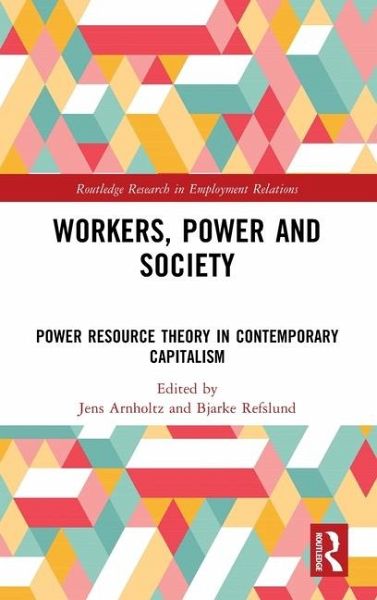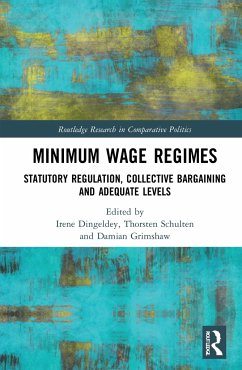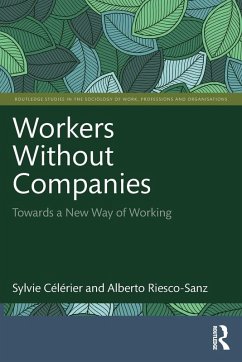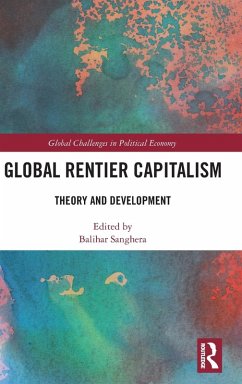
Workers, Power and Society
Power Resource Theory in Contemporary Capitalism
Herausgegeben: Arnholtz, Jens; Refslund, Bjarke
Versandkostenfrei!
Versandfertig in 6-10 Tagen
144,99 €
inkl. MwSt.
Weitere Ausgaben:

PAYBACK Punkte
72 °P sammeln!
The book addresses how power and power resources remain important analytically as well as empirically dimensions for analysing contemporary capitalism. It provides a theoretical framework for studying, understanding, and explaining changes in the world of work and how that leads to changes in contemporary capitalist societies. Changes in the world of work are closely related to increasing inequality, growing social unrest, and societal polarisation. Hence the book seeks to deepen our understanding of how developments in the sphere of work have implication far beyond the direct impact on worker...
The book addresses how power and power resources remain important analytically as well as empirically dimensions for analysing contemporary capitalism. It provides a theoretical framework for studying, understanding, and explaining changes in the world of work and how that leads to changes in contemporary capitalist societies. Changes in the world of work are closely related to increasing inequality, growing social unrest, and societal polarisation. Hence the book seeks to deepen our understanding of how developments in the sphere of work have implication far beyond the direct impact on workers. The book focuses on how workers and unions utilise their various power resources to off-set the power advantage of employers and capital in the sphere of labour politics, which have crucial linkages with both cultural life, politics, and the market. Although workers' and unions' power and influence have been declining almost universally across the world, the argument in the book is that they still hold power resources that can challenge and sometimes alter outcomes in another direction than what employers and capital wants. Hence the theory can help understand the possibilities that workers and unions still have and how these resources affect the outcomes of the labour-capital struggle. A core contribution of the book is that it develops theoretical propositions about power resource theory, provides clear definitions of the core concepts as well as apply the power resource theory to a range of new or emerging topic fields like global value chains, minimum wages, and migrant workers.














